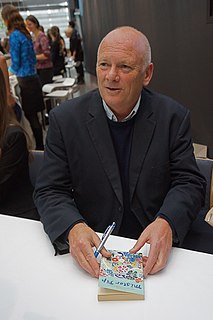A Quote by William Penn
It is a severe rebuke upon us, that God makes us so many allowances, and we make so few to our neighbour.
Related Quotes
Adversity is a severe instructor, set over us by one who knows us better than we do ourselves, as he loves us better too. He that wrestles with us strengthens our nerves and sharpens our skill. Our antagonist is our helper. This conflict with difficulty makes us acquainted with our object, and compels us to consider it in all its relations. It will not suffer us to be superficial.
There are two gods. The god our teachers teach us about, and the God who teaches us. The god about whom people usually talk, and the God who talks to us. The god we learn to fear, and the God who speaks to us of mercy. The god who is somewhere up on high, and the God who is here in our daily lives. The god who demands punishment, and the God who forgives us our trespasses. The god who threatens us with the torments of Hell, and the God who shows us the true path.
There are two gods. A god who casts us off because of our sins, and a God who calls to us with His love.
For us Christians, love of neighbour springs from love of God; and it is its most limpid expression. Here one tries to love one's neighbour, but also to allow oneself to be loved by one's neighbour. These two attitudes go together, one cannot be exercised without the other. Printed on the letterhead of the Missionaries of Charity are these words of Jesus: "as you did it to one of the least of these my brethren, you did it to me". Loving God in our brethren and loving our brethren in God.
Not my idea of God, but God. Not my idea of H., but H. Yes, and also not my idea of my neighbour, but my neighbour. For don't we often make this mistake as regards people who are still alive -- who are with us in the same room? Talking and acting not to the man himself but to the picture -- almost the précis -- we've made of him in our own minds? And he has to depart from it pretty widely before we even notice the fact.
God allows and at times causes us to go through the kinds of circumstances that strip away all falsehood and leave us with our real selves. God's ultimate intent is not to leave us faithless, but to leave us faith-full. There are few things as exhilarating as going through the fire and finding that you had the resilience to make it through. All of us wonder at times whether we have what it takes. God wants to bring us to a place where we have no doubt of the work He has done within us.
We must embrace our differences, even celebrate our diversity. We must glory in the fact that God created each of us as unique human beings. God created us different, but God did not create us for separation. God created us different that we might recognize our need for one another. We must reverence our uniqueness, reverence everything that makes us what we are: our language, our culture, our religious tradition.









































